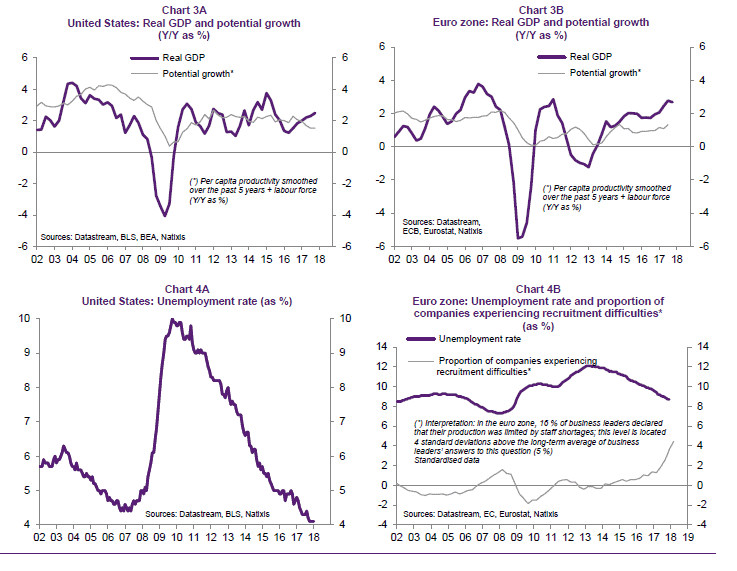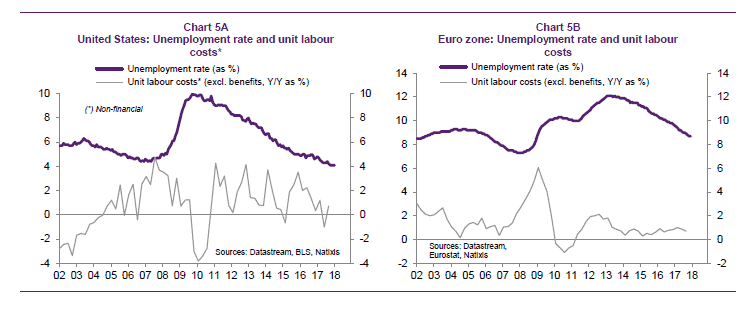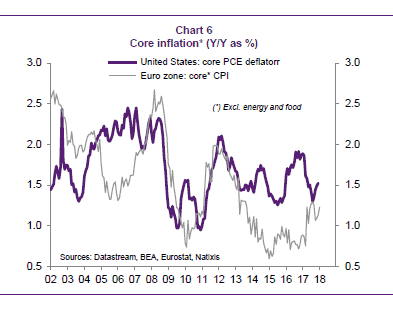Nearly one day after Federal Reserve Chair Jerome Powell spoke before Congress, the Dow Jones Industrial Average, which at one point Wednesday was up 166 points, turned tail to end the session down more than 380 points lower. The “I word,” inflation, has been spooking investors. But is this part of a “new paradigm,” as Natixis research analyst Patrick Artus suggests?

Powell voicing economic optimism on Tuesday could be hitting markets on Wednesday. Most important in the Powell speech was his noting that in the December meeting three rate increases had been the expectation that was set. It was his analysis of what has transpired since that point that is concerning to investors.
“Since then, what we’ve seen is incoming data that suggests a strengthening in the economy and continuing strength in the labor market,” Powell told Congress. “We’ve seen some data that in my case will add some confidence to my view that inflation is moving up to target. We’ve also seen continued strength around the globe. And we’ve seen fiscal policy become more stimulative.”
TD Ameritrade analyst JJ Kinahan said that it was those words, indicating that rates may be hiked quicker and faster than anticipated, that is spooking markets.

With a potential to raise interest rates further than expected – four hikes are now actively being considered by analysts – this puts inflation and wage growth in a particular in focus as paradigms change.
“The market paradigm was the risk of deflation from 2014 to 2016,” the Natixis report noted. “But, since 2017, we have seen a new paradigm appear: the resurgence of inflation.”
Looking at five and ten years zero coupon SWAPs a discernable trend higher in rates is apparent. Growth is now higher than potential growth – reality has caught up with the model — is creating a witches brew that “can, therefore, be expected to bring back faster growth in labour costs and rising inflation,” Artus wrote.
When Natixis looks at the markets in their February 26 report, they “find no sign of an acceleration in labour costs or a rise in inflation,” unlike Powell, who sees the inflation monster rearing its head.
While financial markets, too, might be seeing the inflation boogie man, Natixis notes that actual inflation has been far from a meaningful market feature as of yet. Paradigms are shifting, however, as concerns of deflation have transitioned to fears of inflation.
“Financial markets are betting that inflation will be back, in the United States and the euro zone, and this is pushing up long-term interest rates,” Artus wrote. So far, inflation has not returned. If inflation persists in not rising, it is likely that financial markets will give up their new paradigm, i.e., a resurgence of inflation.”
Kinahan, for his part, sees a market in transition as well:
What might be getting lost here in the market’s kind of reflexive dive is the fact that Powell’s words were optimistic. He seems to like what he’s seeing in the economy, and in the long run, good news for the economy tends to mean more consumer spending and perhaps better earnings results for companies. At this point, the market appears highly sensitive to rising yields and the possibility of additional rate hikes, but borrowing costs remain low from a historic sense. It’s important for investors to keep that in mind, but still be wary in these volatile times.
This has been a nine-year bull market that now has the VIX index near 20 again – a region where it might find comfort and a new trading range with 15 serving as a bottom. Welcome to the new market paradigm.

